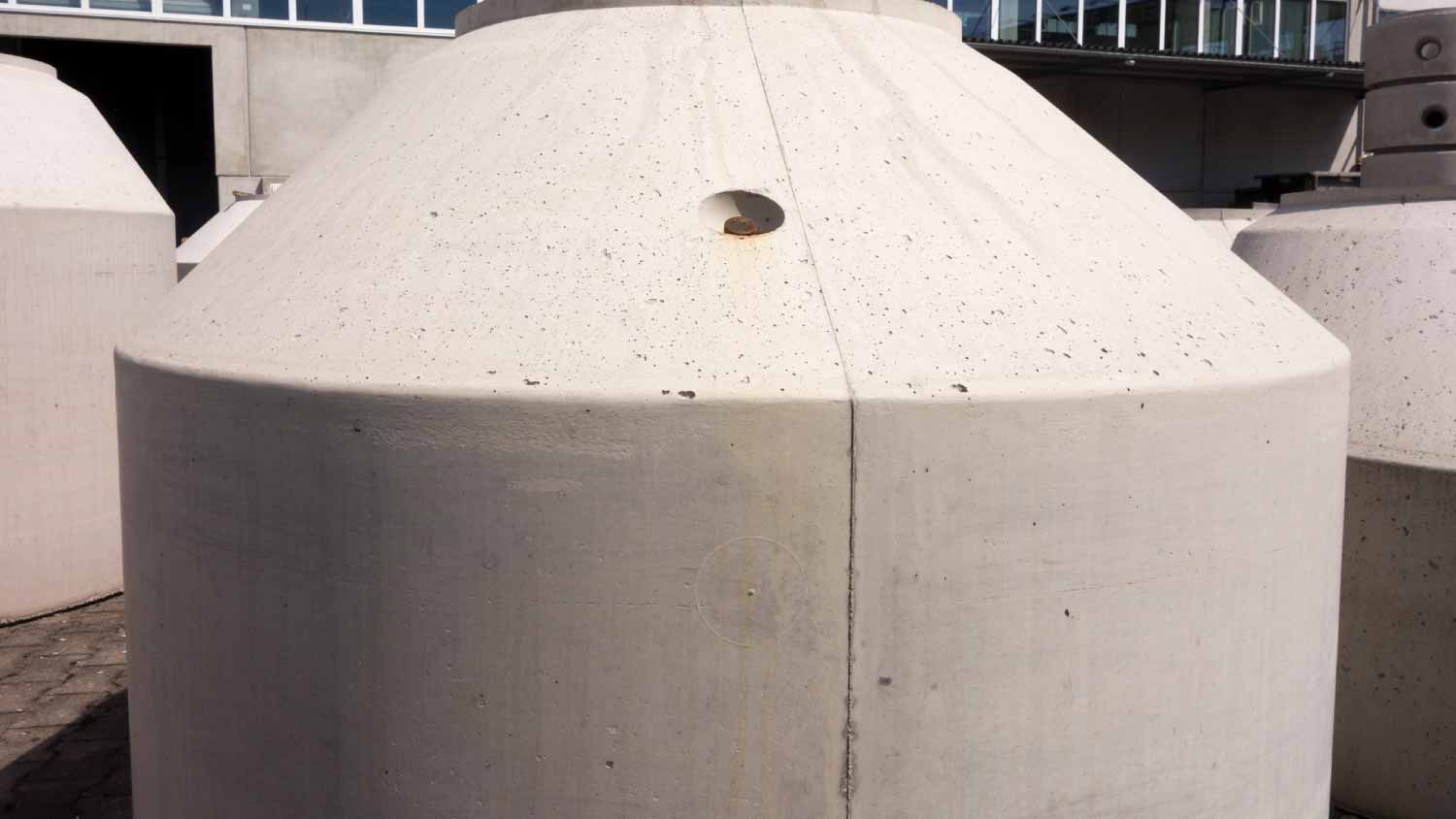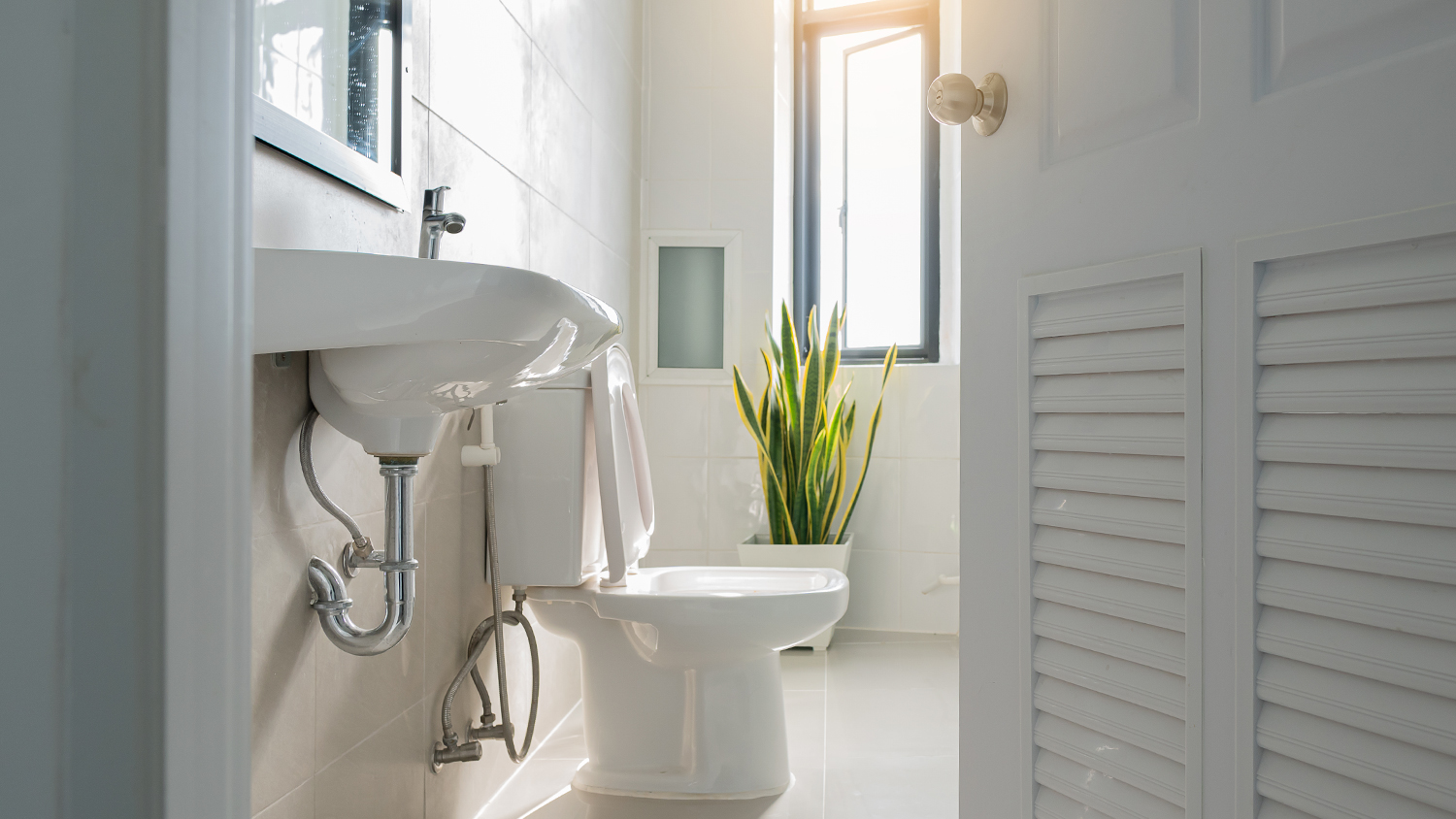
Need to know what sewer line replacement costs in New York, NY? This guide will help you prepare to budget for sewer line replacement done by local contractors.
A safe solution for even the trickiest locations


Above-ground septic tanks are usually only permitted for temporary use.
Above-ground septic systems are common alternatives to conventional systems.
Proper maintenance and care ensure the safety and longevity of your tank and overall system.
A licensed septic tank pro should handle the design and installation of an above-ground system.
Above-ground septic tanks are great for temporary use at a job site or campground. Above-ground septic systems are the perfect alternative for soil and land incompatible with conventional septic systems. Learn all about above-ground septic tank systems, pros, cons, and costs.
An above-ground septic tank is a large container made of concrete, plastic, or fiberglass that stores 250 to 440 gallons of wastewater. They are often used temporarily, such as job trailer waste tanks, motorhome and camper septic tanks, and cottage septic tanks.
Long-term use of above-ground septic tanks is rare in the United States and often not permitted. Above-ground septic tanks are illegal for sanitation and safety concerns in most states and municipalities. Harsh weather and the elements can cause above-ground septic tanks to deteriorate quickly.
While above-ground septic tanks are not suitable for use on a residential or commercial lot, above-ground septic systems are permitted in most areas. Above-ground septic systems may be necessary if the soil conditions aren’t compatible with a conventional system or your property is near an environmentally sensitive area or body of water. When building a septic system on a property, a builder or septic tank company assesses your soil with a perc test. They also look at your lot to see if a conventional septic system could harm the surrounding natural environment.
Underground septic systems use a series of tanks, pipes, and drains to separate wastewater from sludge. Bacteria treat the waste to remove contaminants. The water is then distributed throughout the soil and absorbed into the ground.
Above-ground septic systems use technology or filters above the grade level instead of underground. The septic tank itself is underground, though. The pump chamber sends the effluent to higher points for more treatment before being distributed into the soil.
Your property might require an above-ground septic system. Here are the main reasons you might need an above-ground system:
Your soil is too dense.
You have a high water table.
You don’t have enough land for an underground septic system.
Your soil fails the perc test, meaning it absorbs water too quickly or too slowly.
You live near a sensitive natural environment or nature preserve.
You live near a body of water.
Your soil has bedrock too close to the surface.

Most above-ground septic system types are mound systems, although sand filter systems can also be above grade.
Mound septic systems pump wastewater from the tank into a sand mound slightly above grade. The system has three main components: a septic tank, a dosing chamber with a pump, and an above-ground mound that operates as a filter and drainage bed. The sand filters the water before it disperses into the soil and groundwater. Topsoil covers the system, creating a mound. An observation tube and access riser protrude from the ground. Mound systems are great for dense or shallow soil or a high water table. They need considerable space, so they’re most prevalent in rural areas.
Mound septic systems range from $10,000 to $20,000, more than the cost of other septic systems. They require ongoing maintenance to ensure proper operation. Mound systems have an alarm system that alerts you if the pump fails or the water rises too high.
A sand filter system uses a large PVC-lined or concrete box filled with sand. The effluent moves from the septic tank to a pump chamber. The pump sends the effluent through a layer of sand, where it filters and treats the wastewater before depositing it into the drain field. The sand filter incorporates oxygen to clear out toxins and nutrients in the wastewater.
Sand filters are best for properties near bodies of water and environmentally sensitive areas. They also are alternative septic systems when the soil is shallow, or the water table is too high. Unlike mound systems, sand filter systems work on smaller lots. They can be above grade or partially or fully underground.
A recirculating sand filter system costs $7,000 to $18,000. The system and filters must be well-designed, constructed, and maintained to ensure that sand doesn’t clog the system.
Knowing the positives and challenges of above-ground septic tank systems can help you prepare.
Easy to inspect and maintain due to closer access points
Low risk of groundwater contamination
Great alternative solution for areas with dense soil or near sensitive natural environments
Can be less visually appealing, as they often include a mound, observation tube, and access riser
Prone to some accidental damage from the weather and elements
Requires ongoing maintenance and monitoring
Higher cost than conventional septic systems
Proper septic system maintenance can help prevent clogs and malfunctions and extend the lifetime of your system.
A licensed professional should inspect your septic system every three to five years. They can catch any problems with the pump, tank, and drain field. The cost of a septic inspection ranges from $100 to $200.
A licensed professional should pump your system to clean your septic tank once every three to five years. A pro knows how to safely empty an above-ground septic tank system, helping to prevent backups and overflows. The average cost of a septic tank pumping is $400.
According to data from Angi customers, most homeowners (32.9%) have a pro clean their septic tank every one to four years. However, 24.5% of homeowners don’t know how often they get their septic tank cleaned. Getting your septic tank cleaned regularly lets you avoid sewage backup, slow water draining in your home, and bad smells throughout your property. If you don’t know the last time you got your system cleaned, reach out to a septic company ASAP.
Some items can clog your septic system, including grease, trash, feminine hygiene products, non-flushable wipes, and cat litter. Put these waste items in the trash, instead. You should also avoid pouring household chemicals down your drain. Harsh chemicals could kill the organisms that break down waste in your septic system.
The amount of water you use in your home is how much water exits through your septic system. Conserve water as best you can, including limiting your shower length and switching to low-flow fixtures.
Placing plants with deep root systems near your septic system can disrupt your drain field. Talk with a septic pro to determine where to put trees, shrubs, and other landscaping plants.
Careful design and construction are essential in creating an above-ground septic system. In other words, building a septic system is not a DIY project. A local septic tank company will test your soil and determine the best septic system for your property. Most municipalities require a perc test and a licensed contractor to build a septic system. A septic system can fail without these precautions, causing expensive (and gross) catastrophes.
From average costs to expert advice, get all the answers you need to get your job done.

Need to know what sewer line replacement costs in New York, NY? This guide will help you prepare to budget for sewer line replacement done by local contractors.

Need to know what sewer line replacement costs in San Francisco, CA? This guide will help you prepare to budget for sewer line replacement done by local contractors.

The cost of converting a cesspool to a septic system depends on factors like labor, complexity, and materials. Use our guide to estimate your budget.

Your lot might require an alternative septic system based on location and soil conditions. Learn all about alternative septic systems and their costs.

Need to know what sewer line replacement costs in Minneapolis, MN? This guide will help you prepare to budget for sewer line replacement done by local contractors.

If you’re unsure how to fill in a cesspool, we’re here to teach you the ropes, explain the tools, and help you hire a pro if needed.